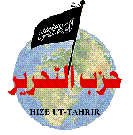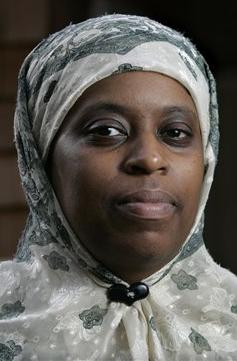 At Prime Minister’s Questions on Wednesday, Labour MP Clive Efford asked David Cameron, in connection with the government’s announcement that the Tehrik-e-Taliban Pakistan would be added to the list of proscribed terrorist groups, why he has “not fulfilled his manifesto commitment” to ban Hizb ut-Tahrir.
At Prime Minister’s Questions on Wednesday, Labour MP Clive Efford asked David Cameron, in connection with the government’s announcement that the Tehrik-e-Taliban Pakistan would be added to the list of proscribed terrorist groups, why he has “not fulfilled his manifesto commitment” to ban Hizb ut-Tahrir.
Cameron refused to answer the question, demanding instead: “why did the last Government have 13 years, yet the Pakistani Taliban were never banned? It has taken us eight months to do what they failed to do in 12 years.” (To which supporters of the last government might reply that Labour’s failure to proscribe the Tehrik-e-Taliban Pakistan immediately after taking office in May 1997 could possibly be explained by the fact that the TTP wasn’t founded until December 2007.)
But the Tory Party’s 2010 election manifesto did indeed contain an explicit commitment to “ban any organisations which advocate hate or the violent overthrow of our society, such as Hizb-ut-Tahrir”. And when he was leader of the opposition Cameron repeatedly called for the proscription of HT (see for example here, here, here,here), as did other prominent figures in the Tory Party such as Pauline Neville-Jones, Chris Grayling and Patrick Mercer.
It was explained to Cameron by spokespersons for the Labour government that, while they were keeping HT under review, an organisation cannot be proscribed under the 2000 Terrorism Act unless there is actual evidence that it is “concerned in terrorism”. And in the case of HT, which is a peaceful if highly sectarian organisation that rejects any involvement with or support for terrorist activities, no such evidence exists.
Challenged in the Commons on Wednesday evening over the government’s plans to ban HT, Damian Green stated only that “Hizb ut-Tahrir is an organisation about which we have real concerns, and I can confirm that its activities are kept under review”. And ENGAGE draws our attention to an article in Thursday’s Daily Express which reports that “Downing Street insiders” have “admitted that there was a lack of evidence of law-breaking for such a banning”.
In short, it would appear that Cameron has now adopted exactly the same position on the illegalisation of HT for which he vehemently denounced Labour when they were in office. In a letter to the prime minister, Ed Balls has written: “Isn’t it the case that the issue has turned out to be more complicated in government than the grandstanding and simple soundbites you made in opposition?”
Precisely so. Without any concern for the civil rights of an organisation that operates entirely within the law, Cameron used the demand for the proscription of HT in order to score party political points against the Labour government, he appealed to voters in the 2010 general election on the basis of a manifesto promise he couldn’t keep, and then quietly abandoned it once he was in power.

 DOUGLASVILLE, Ga. — A Muslim woman who was
DOUGLASVILLE, Ga. — A Muslim woman who was